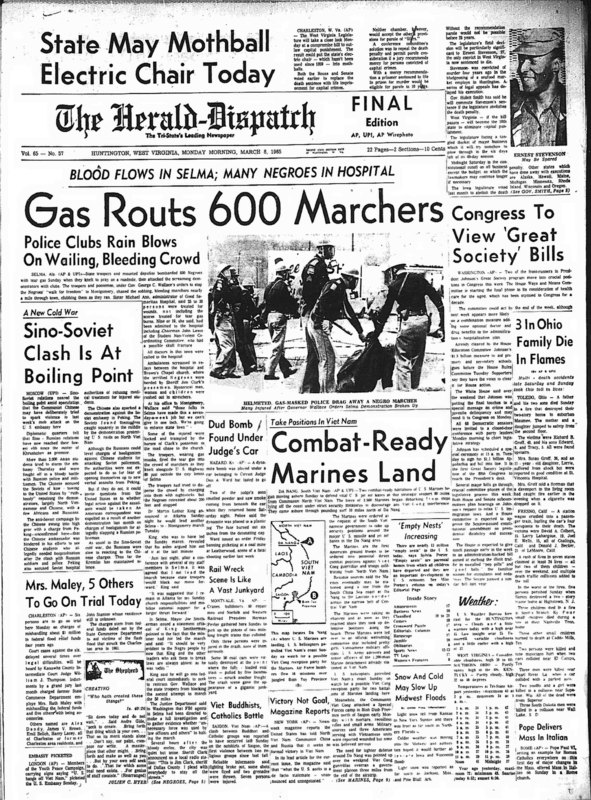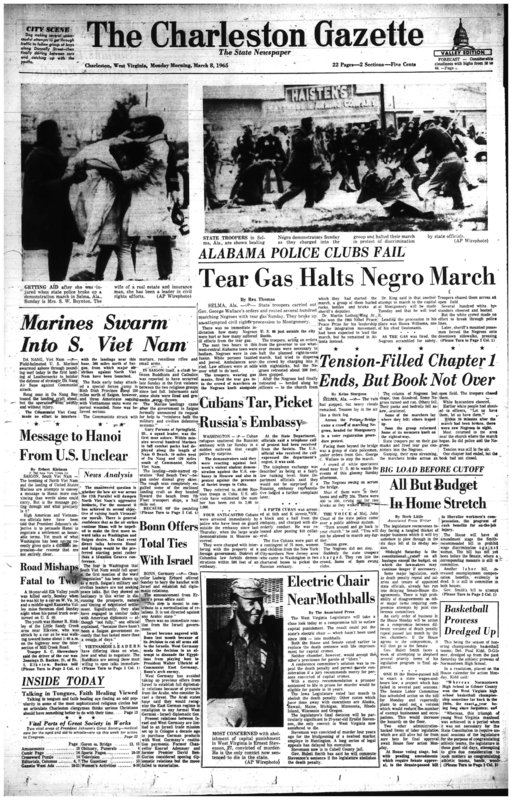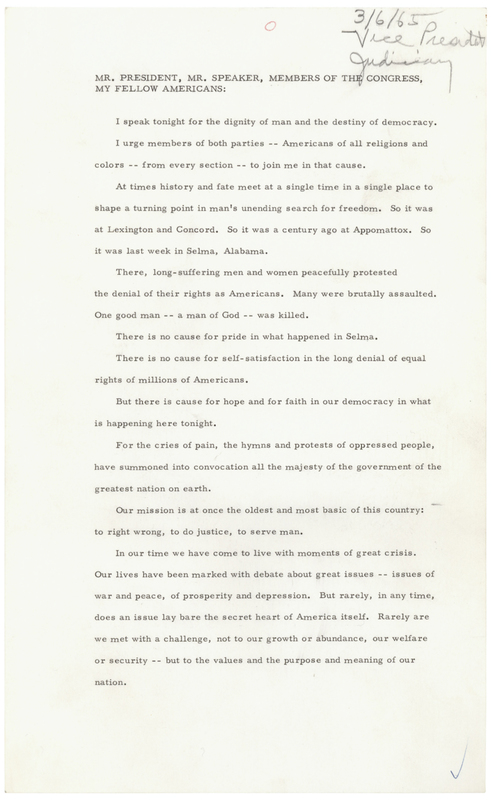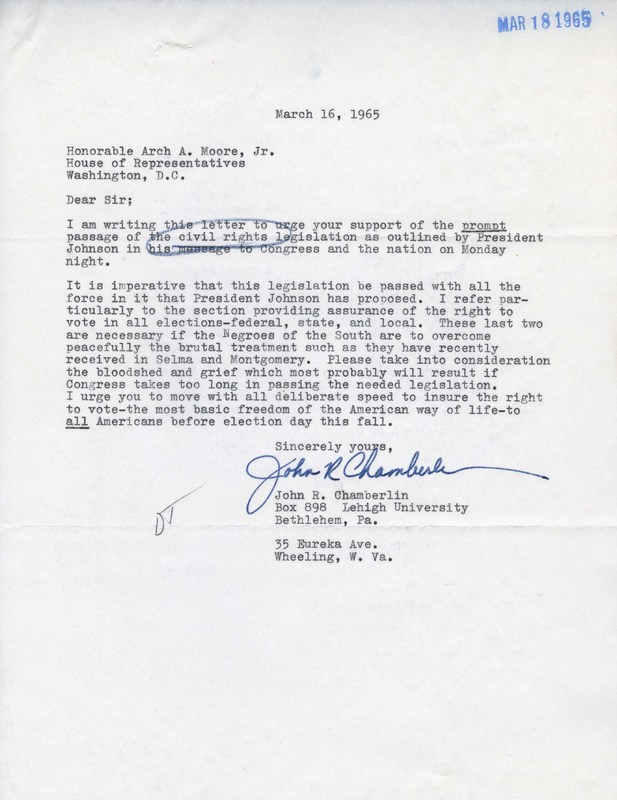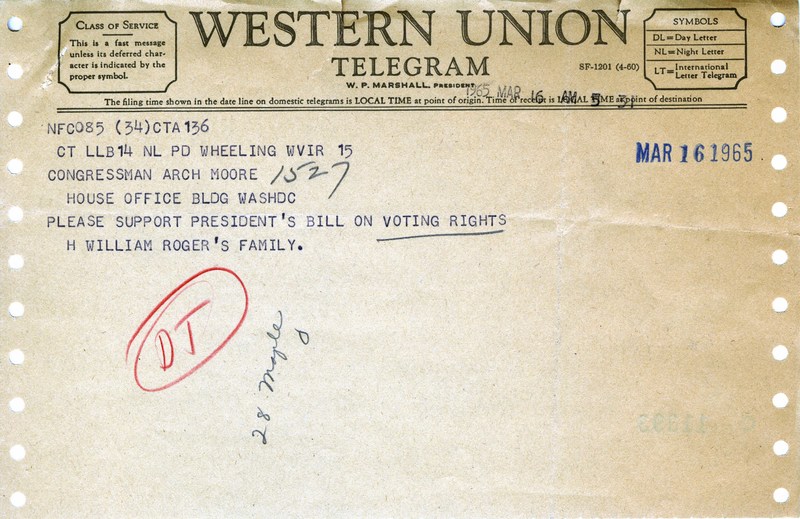Bloody Sunday
Even after the passage of the Civil Rights Act of 1964, discriminatory practices continued to depress voter registration rates for African Americans living in the South. Senate leaders and the Johnson Administration were quietly working on a voting rights bill, but civil rights leaders were frustrated with the wait, especially as activists and protesters were met with increasing violence.
In Selma, Alabama, where only two percent of eligible African Americans were registered to vote, the Southern Christian Leadership Conference announced it would begin a voting rights campaign there. The nonviolent campaign began relatively peacefully, but in February, an Alabama state trooper shot and killed Jimmie Lee Jackson, a 26-year-old church deacon.
On March 7, 1965, in response to Jackson’s death, activists organized a march from Selma to Montgomery, the state capital. Alabama state police and a posse deputized by a county sheriff violently attacked the marchers as they crossed the Edmund Pettus Bridge. Television and newspapers broadcast the violence across the country in what became known as “Bloody Sunday.” An outraged nation put pressure on Congress and the president to pass a bill protecting the right to vote for all Americans.
